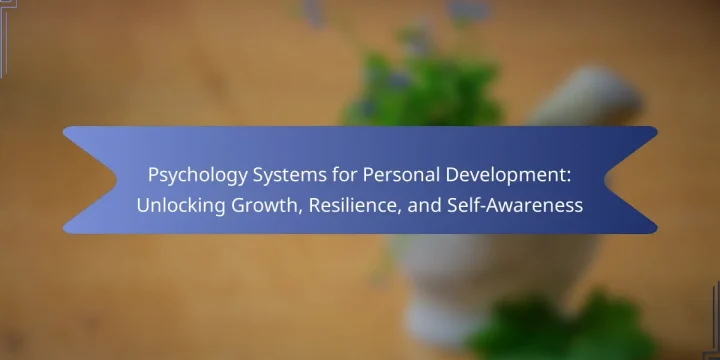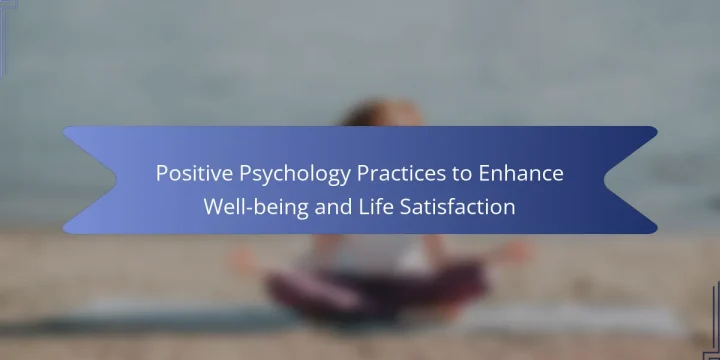
Unlocking personal growth, resilience, and self-awareness is essential for navigating life’s challenges. Psychology systems for personal development, including cognitive-behavioral therapy, positive psychology, and humanistic psychology, offer diverse strategies for transformation. These systems emphasize evidence-based practices, adaptability, and holistic approaches to enhance well-being. By integrating techniques like mindfulness and emotional regulation, individuals can effectively achieve their personal development goals. Key sections in the article: Toggle What are the foundational psychology systems for personal development?How do these systems promote growth and resilience?What key theories underpin these systems?What role does self-awareness play in personal development?What are the universal attributes of effective psychology systems?How do evidence-based practices enhance personal growth?What common methodologies are used across various systems?What unique attributes differentiate specific psychology systems?How does cognitive-behavioral therapy uniquely support personal development?What benefits does positive psychology…








